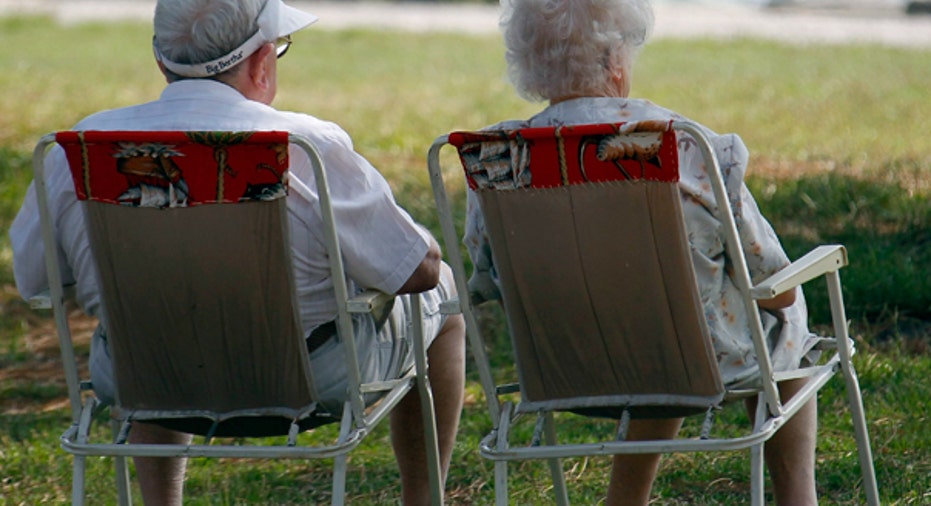How to Live to 100...and Beyond

Good news: Working out seven days a week and maintaining a zero-fat diet aren’t the only ways to live longer. Going to church, taking naps and eating nuts can also add years to your life
“Diet and supplements and exercise programs aren’t what is achieving longevity,” says Dan Buettner, founder and CEO of Blue Zones Projects, which identifies happy and healthy communities across the globe. “Having a faith-based community can add four to 14 years.”
Buettner, who is also a National Geographic fellow, has trekked around the world to locate regions where people are living to be 100+ and what’s behind the citizen’s longevity. He identified five regions with long-last residents: Okinawa, Japan, Sardinia, Italy, Loma Linda, California, Nicoya, Costa Rica and Ikaria, Greece and nine characteristics that all of the people in these places share. The good news: they are things that can be easily incorporated into anyone’s life.
Move Around
Many of us are stuck behind a desk most days with a sedentary job, but getting up and moving can add four years to your life, according to Buettner.
“People who are making it to 100 live in environments where they are regularly nudged into physical activity.” Take the village of Okinawa, where some individuals live to 140, they spend their days getting up and down off the floor, not because they want to build their leg strength, but because they don’t have furniture.
Have Faith
It doesn’t matter the religion, being part of some form of a faith-based community can add anywhere from four to 14 years to your life.
According to Buettner, it’s not about measuring your faith, but people that attend a religious institution four times a month have less stress and less illness. Of the 263 centenarians the Blue Zones team interviewed, only five didn’t attend faith-based services.
Choose the Right Friends
Even if you think you aren’t easily influenced, who you surround yourself with can have an impact on how long you live. If your inner circle likes to drink every night, smoke or eat fatty foods, chances are you are going to partake at least periodically.
“In the five areas, no one is sitting on a bar stool or sitting on the couch watching reruns,” says Buettner. “The people are passing along positive health.”
Shift to a Plant Diet
Embracing a plant-based diet and snacking on nuts can add two to four years to your life, Blue Zones Project finds. Curbing meat intake to lean options and small portions twice a week, is a step in the right direction for a long and healthy life.
“Black beans and soy beans are the cornerstones of longevity diets around the world,” Buettner says. He adds that eating nuts—no matter the type—on a daily basis will also boost life span.
Keep Your Parents Nearby
Buettner’s research has found that keeping aging parents nearby adds anywhere from two to six years for the aging parents and lowers the mortality rate for young children.
“Kids in a home with grandparents are healthier. We warehouse our grandparents and seniors in homes at an enormous cost. This is going back to traditional values.”
Know Your Purpose
Having a reason to wake up every morning can add up to seven years to your life. Having a sense of purpose, whether it’s at work o r in your personal life, will bring you joy and reduce stress.
Buettner suggests doing an internal inventory to figure out your values, passions and talents and then come up with ways to put those skills into action.
Drink Wine…to a Limit
Drinking isn’t always bad for you as long as you do it in moderation. According to Buettner, moderate drinkers who have one to two drinks a day in social settings outlive non-drinkers.
Buettner suggests drinking Sardinian Cannonau wine and discourages against saving all of your drinks for a weekend of binge drinking.
De-stress
No matter the location, everyone is prone to stress, but it’s how you deal with it that determines your lifespan, according to Buettner’s findings.
Centenarians have found ways to de-stress, whether it’s exercise, meditation, yoga, prayer or curling up with a good book. “They have ritualistic times every day where they down shift,” says Buettner. “It either comes from prayer, mediation, happy hour and even taking a nap.” In fact Buettner says napers have 35% less cardio vascular disease than non napers. You only have to sleep two to five minutes to get the benefits, he adds.
Don’t Finish Your Plate
How much you eat is just as important as what you eat. People in the Blue Zones subscribe to the policy of only eating until they are 80% full. That means they don’t go up for seconds or eat until they are stuffed. In fact, many eat their smallest and last meal in the late afternoon or early evening. Adopting this eating habit can add eight years to your life.



















